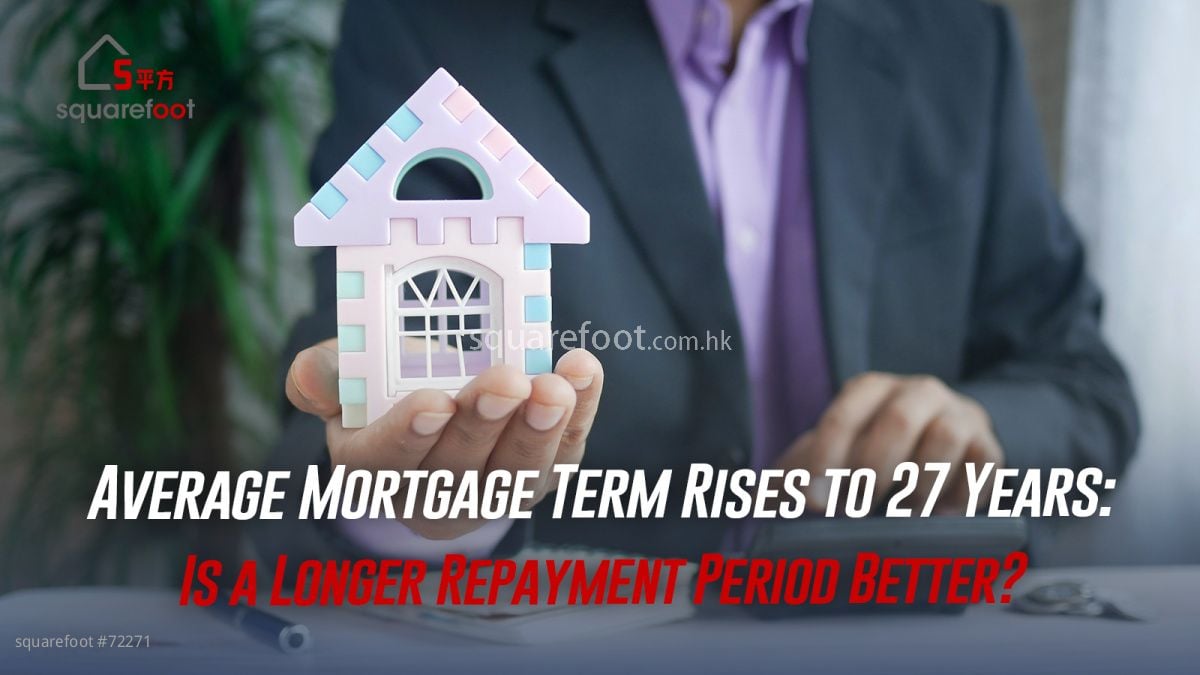The average mortgage repayment term for residential properties in Hong Kong has gradually increased to 27 years, compared to just over 15 years in the early 2000s, according to data from the Hong Kong Monetary Authority. While a longer repayment period may appear beneficial, it is crucial to carefully consider its implications.
The length of the repayment period directly impacts the monthly income required to qualify for a mortgage. Banks typically apply a debt-to-income (DTI) ratio, ensuring that monthly repayments do not exceed 50% of an applicant’s income. For example, if you are purchasing an HK$8 million property with a 90% loan-to-value ratio and an interest rate of 3.375%, the required monthly income will vary depending on the length of the repayment term. Opting for a 25-year term means a minimum monthly income of HK$71,128 is required, whereas extending the term to 30 years lowers the income requirement to HK$63,662. This reduction of over 10% makes longer repayment terms more accessible for buyers.
A longer repayment period also reduces the monthly repayment amount, which may ease financial pressure, particularly in a high-interest-rate environment. For the same HK$8 million property, a 25-year term would require a monthly repayment of HK$35,564, while a 30-year term reduces the monthly repayment to HK$31,831, saving HK$3,733 per month. However, it is important to note that while monthly repayments are lower, the total interest paid over the life of the loan increases significantly with a longer term, which can add substantial costs in the long run.
The borrower’s age and the property’s age can also limit the maximum available repayment term. Although the general maximum for mortgage terms is 30 years, banks often determine the term based on the formula: 75 years minus either the borrower’s age or the property’s age, whichever is lower. For instance, if the borrower’s age limits the term to 25 years but the property’s age allows for 30 years, the approved term would still be capped at 25 years. This highlights the importance of considering both personal circumstances and the property’s condition when applying for a mortgage.
In cases where the borrower’s age restricts the repayment period, adding a younger family member as a guarantor can help extend the term. For example, a 60-year-old borrower would typically qualify for a maximum term of 15 years. However, by including a 30-year-old guarantor with sufficient repayment ability, the term can be extended to the full 30 years. It is important to note that policies vary among banks, so consulting with your lender or a professional mortgage advisor is recommended.
While a longer repayment term can lower income requirements and reduce monthly financial pressure, it also leads to higher overall interest costs. Borrowers should carefully assess their financial situation, age, and long-term goals before deciding on a repayment period. Seeking advice from a professional mortgage consultant is always a wise step to make an informed decision.
Like
| Property Type | Price | Ads Period |
|---|---|---|
| For Sale Property | ||
Normal Listing Typical One | HKD:1000 (or Hsemoney:1000) | Valid:90 days |
Golden Top Listing Higher position than Top listing 2-3times better performance | HKD:3000 (or Hsemoney:3000) | Valid:60 days |
| Rental Property | ||
Normal Listing Typical One | HKD:1000 (or Hsemoney:1000) | Valid:80 days |
Golden Top Listing Higher position than Top listing 2-3times better performance | HKD:3000 (or Hsemoney:3000) | Valid:60 days |
